“The beauty of a woman becomes useless if there is no one to admire it.” African Proverb
For years in parts of Africa, albinism is seen as a curse with people facing persecution and ostracisation from communities who fear them.
But for the first time ever, it was redefined as a sign of beauty. Taking place in Nairobi, Kenya last month, the country held the world’s first albino pageant exclusively for people with albinism to fight the widespread persecution of albinos in East Africa.
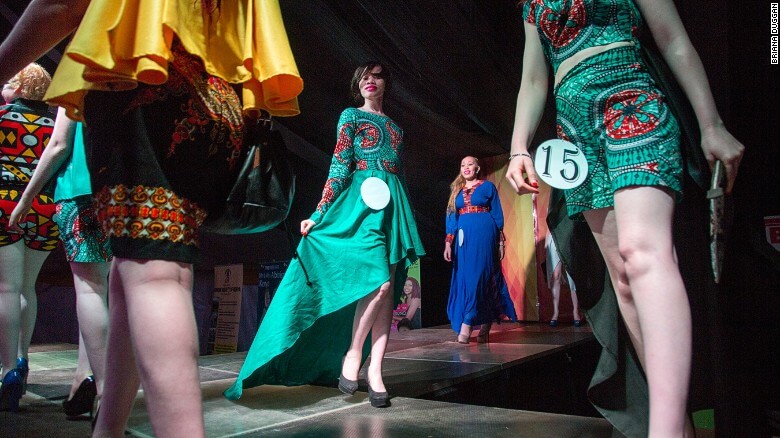
Contestants parade around the stage flaunting their beautiful gowns. Image credit: Briana Duggan.
20 contestants celebrated their beauty in the form of song, dance, and overall merriment to the pleasure of the 1000+ crowd. Titled “Beauty Beyond the Skin” the event was a stark contrast to the discrimination suffered by albinos in some African countries, where they can often face abuse – and sometimes even death.
The contestants consisting of ten men and women, modelled the latest fashions as they competed for the title of Mr and Miss Albinism Kenya which included guests and deputy president William Ruto.
Dressed up as army officers, waiters and police officers, the contestants were set on highlighting that albinos belong in every part of society and want their voices to be heard as they used the occasion to petition the government to better recognise and respect their condition.
“It has not been an easy journey to acceptance,” 20 year old contestant Simon Gachucha who grew up with low self-esteem said. “I had to understand that I could not die and be reborn as a black man. I needed to realize that I am a black man because I was born by a black woman.”
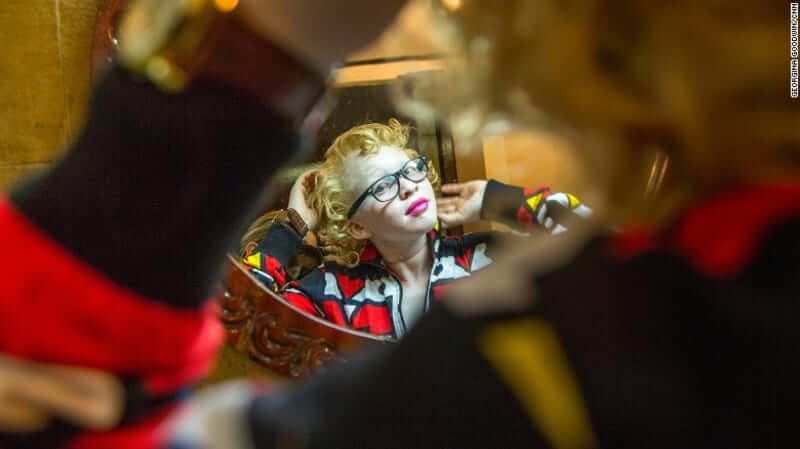
A contestant poses for the camera while getting ready for the pageant. image via CNN
Since 2009, two albinos have died and four children have been rescued by Kenyan authorities from deadly situations although advocates expect the true figures to be higher.
Albinism is an inherited genetic condition characterized by a lack of pigmentation in skin, eyes and hair. Some African societies see the condition as a curse while others believe albinism is a sign of infidelity, where a mother had an affair with a white man, and many contestants were raised by single mothers after their fathers left soon after they were born. Many are ostracized by their communities.
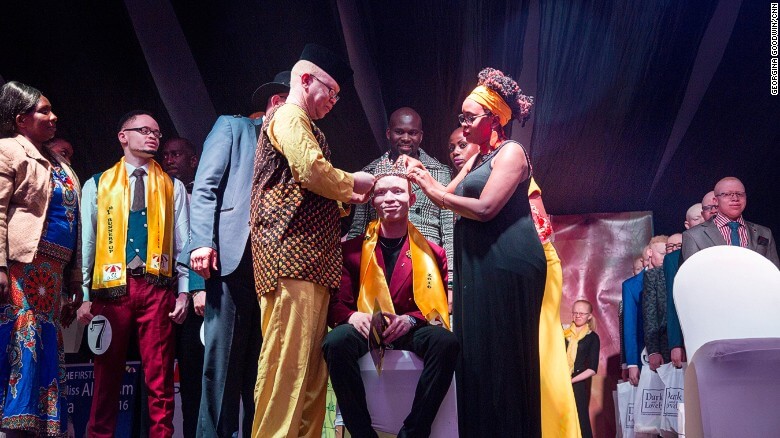
Jairus Ong’etta was crowned Mr Albinism at the first Beuaty Pageant for Albinos held in Kenya. image via CNN.
“People would ask my mother, what kind of mother are you?” said Simon. “She got affected. She used to ask herself, how could she have a son with albinism? She used to think something was wrong with her.”
The situation is worse in other African countries. The United Nations says there have been 65 recorded cases of attacks against albinos in Malawi since November 2014.
The event was also graced my Kenya’s first and only albino MP, Isaac Mwaura, who spearheaded the event and said he wants to change the narrative around individuals such as himself with albinism.
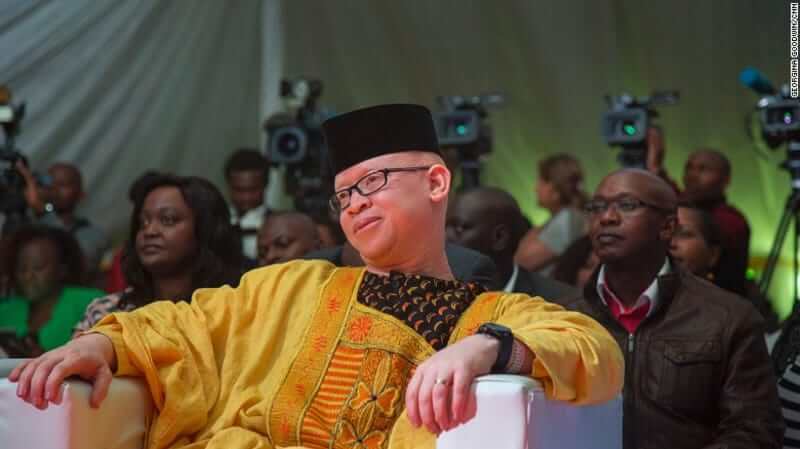
The beauty pageant was organised by Isaac Mwaura, Kenya’s first albino parliamentarian and the founder of the Albinism Society in Kenya. Image credit: Georgina Goodwin/CNN.
“We will make the world understand that we aren’t ‘mzungu,'(the Swahili term for a Caucasian person)” Mwaura told the audience at Nairobi’s upscale Carnivore restaurant and event space.
“We aren’t pesa (money). We are human beings,” he added.
In Kenya, people with albinism are sometimes referred to as “pesa” — which means “money” in Swahili — which refers to the large amount of money – sometimes as high as $75,000 – rumoured to be paid for their body parts and bones in places like Malawi, Mozambique and across the border in Tanzania.
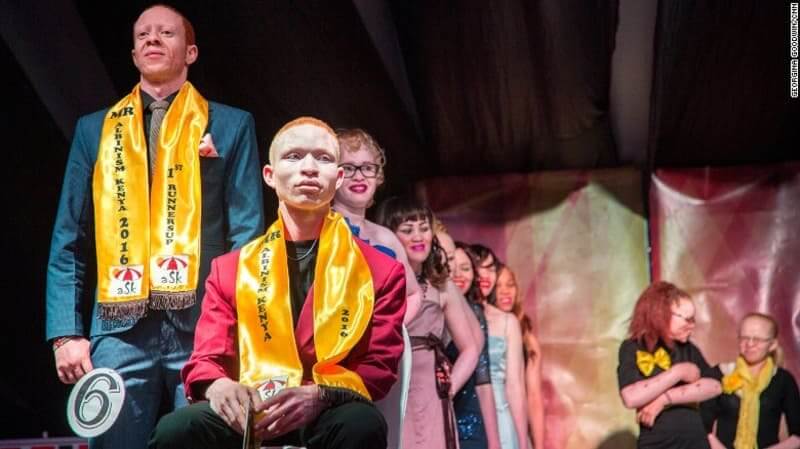
Participants at the “Beauty Beyond the Skin” contest. Image credit: Georgina Goodwin/CNN.
Contestants said part of the problem in Kenya is psychological with one contestant, 21-year-old Andrew Ngune who said, “You’re seeing your fellow [albino] brothers and sisters being killed for rituals. It’s not hurting us physically but it’s a lot of mental torture.”
Let’s hope that this pageant brings about the change needed to stop the prejudice and stigmatisation regarding people with albinism in and around Africa.



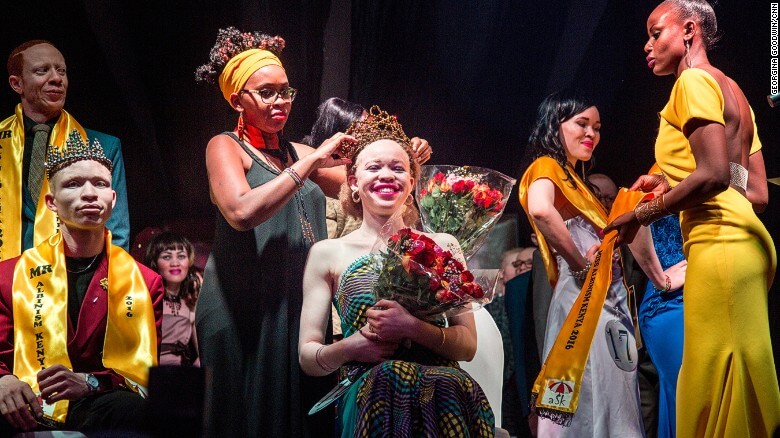
Leave a reply